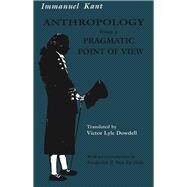Anthropology from a Pragmatic Point of View
, by Kant, Immanuel; Dowdell, Victor Lyle; Rudnick, Hans H.- ISBN: 9780809320608 | 0809320606
- Cover: Paperback
- Copyright: 9/1/1996
In the fall semester of 1772/73 at the Albertus University of Konigsberg, Immanuel Kant, metaphysician and professor of logic and metaphysics, began lectures on anthropology, which he continued until 1776, shortly before his retirement from public life. His lecture notes and papers were first published in 1798, eight years after the publication of theCritique of Judgment,the third of his famousCritiques.The present edition of theAnthropologyis a translation of the text found in volume 7 ofKants gesammelte Schriften,edited by Oswald Kulpe.Kant describes theAnthropologyas a systematic doctrine of the knowledge of humankind. (He does not yet distinguish between the academic discipline of anthropology as we understand it today and the philosophical.) Kant's lectures stressed the "pragmatic" approach to the subject because he intended to establish pragmatic anthropology as a regular academic discipline. He differentiates the physiological knowledge of the human race--the investigation of "what Nature makes of man"--from the pragmatic--"what man as a free being makes of himself, what he can make of himself, and what he ought to make of himself." Kant believed that anthropology teaches the knowledge of humankind and makes us familiar with what is pragmatic, not speculative, in relation to humanity. He shows us as world citizens within the context of the cosmos.Summarizing the cloth edition of theAnthropology, Library Journalconcludes: "Kant's allusions to such issues as sensation, imagination, judgment, (aesthetic) taste, emotion, passion, moral character, and the character of the human species in regard to the ideal of a cosmopolitan society make this work an important resource for English readers who seek to grasp the connections among Kant's metaphysics of nature, metaphysics of morals, and political theory. The notes of the editor and translator, which incorporate material from Ernst Cassirer's edition and from Kant'smarginaliain the original manuscript, shed considerable light on the text."







